Gallery: Amazing Nebula Photos From Chandra & Hubble
A Planetary Nebula Gallery Composite
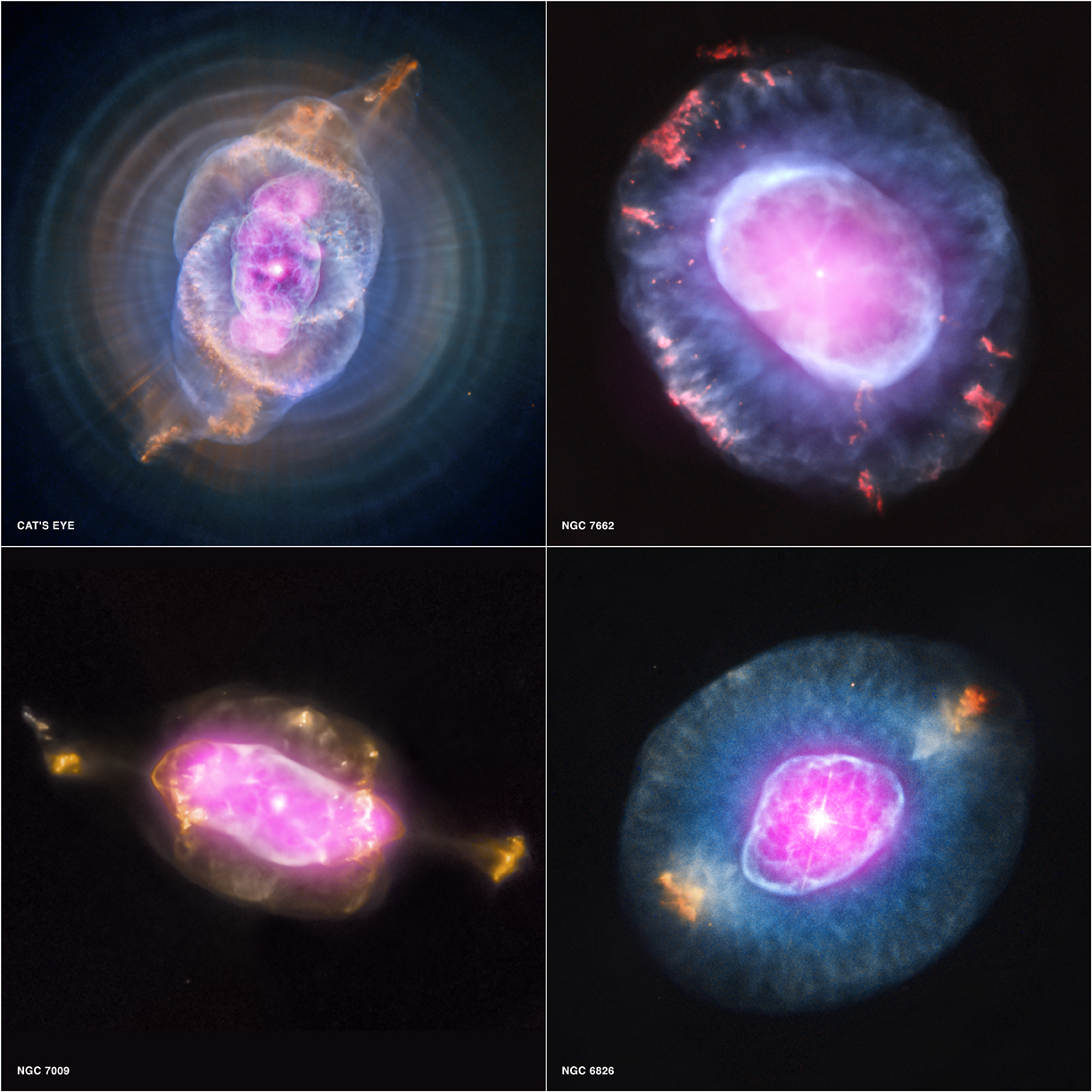
This gallery shows four planetary nebulas from the first systematic survey of such objects in the solar neighborhood made with NASA's Chandra X-ray Observatory. The planetary nebulas shown here are NGC 6543, also known as the Cat's Eye, NGC 7662, NGC 7009 and NGC 6826. This image was released Oct. 10, 2012.
X-ray Emission Image of Planetary Nebula Gallery
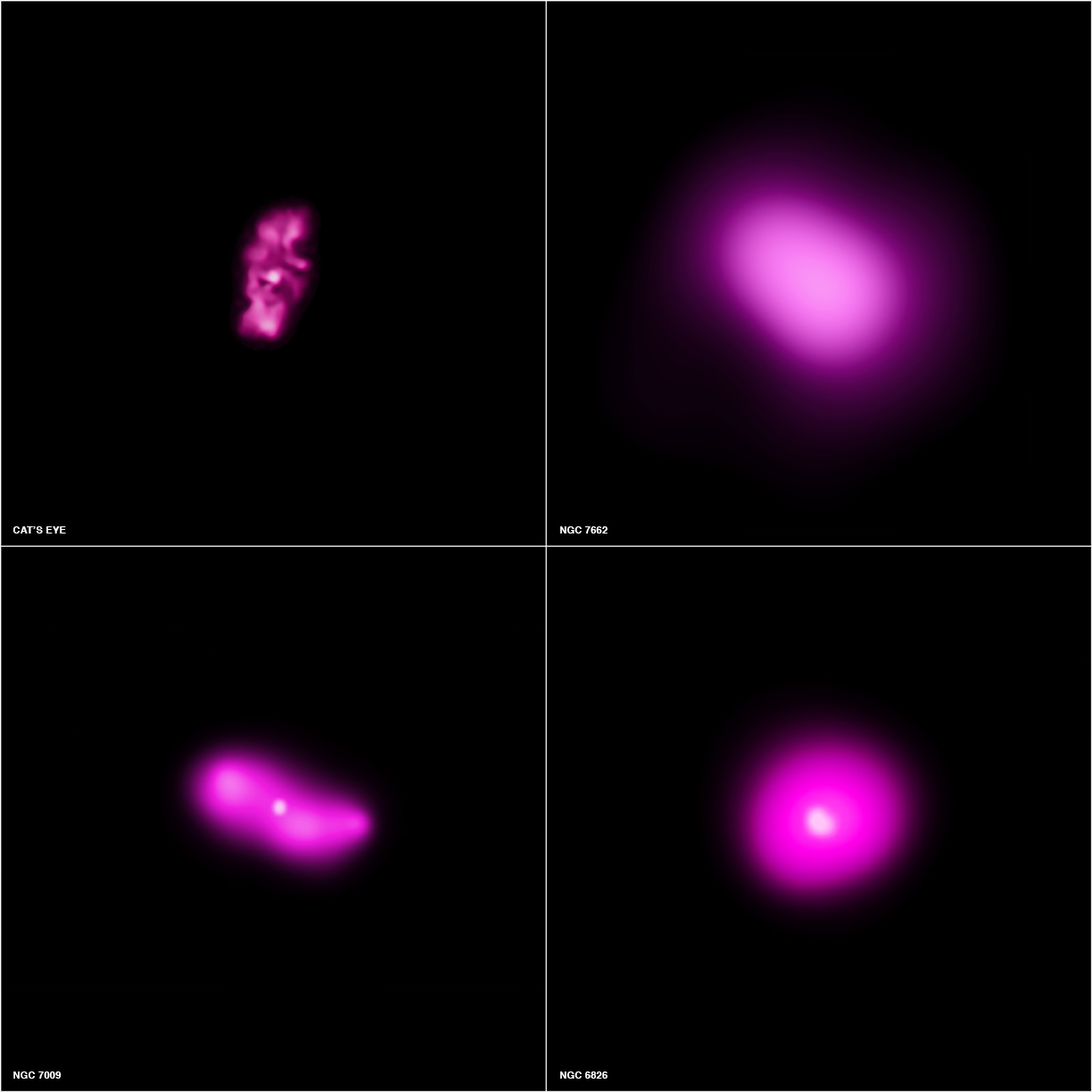
This gallery shows four planetary nebulas from the first systematic survey of such objects in the solar neighborhood made with NASA's Chandra X-ray Observatory. The planetary nebulas included here are NGC 6543 (aka the Cat's Eye), NGC 7662, NGC 7009 and NGC 6826. X-ray emission from Chandra is colored purple and optical emission. This image was released Oct. 10, 2012.
Optical Emission of Planetary Nebula
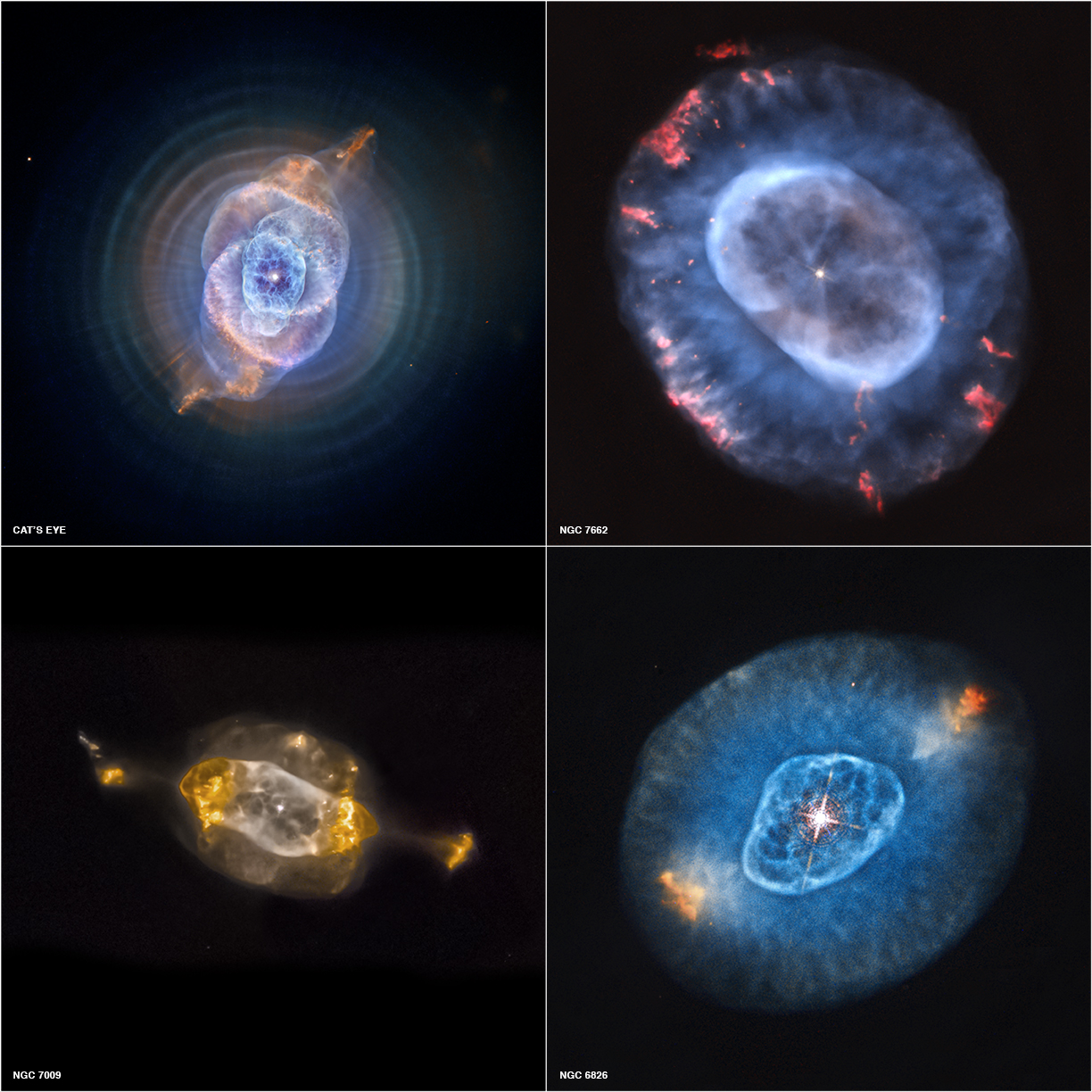
This gallery shows four planetary nebulas from the first systematic survey of such objects in the solar neighborhood made with NASA's Chandra X-ray Observatory. The planetary nebulas included here are NGC 6543 (aka the Cat's Eye), NGC 7662, NGC 7009 and NGC 6826. Optical emission from the Hubble Space Telescope is colored red, green and blue. This image was released Oct. 10, 2012.
The Cat's Eye Nebula or NGC 6543
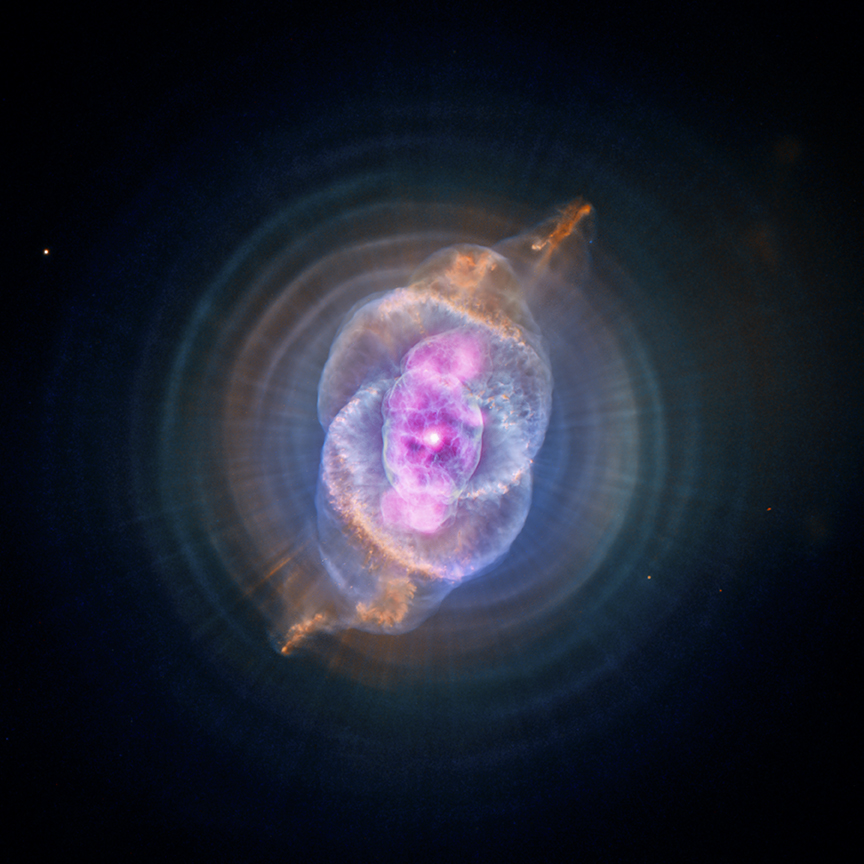
This image is NGC 6543 known as the Cat's Eye Nebula as it appears to the Chandra X-Ray Observatory and Hubble Telescope. A planetary nebula is a phase of stellar evolution that the sun should experience several billion years from now, when it expands to become a red giant and then sheds most of its outer layers, leaving behind a hot core that contracts to form a dense white dwarf star. This image was released Oct. 10, 2012.
X-ray Image of NGC 6543
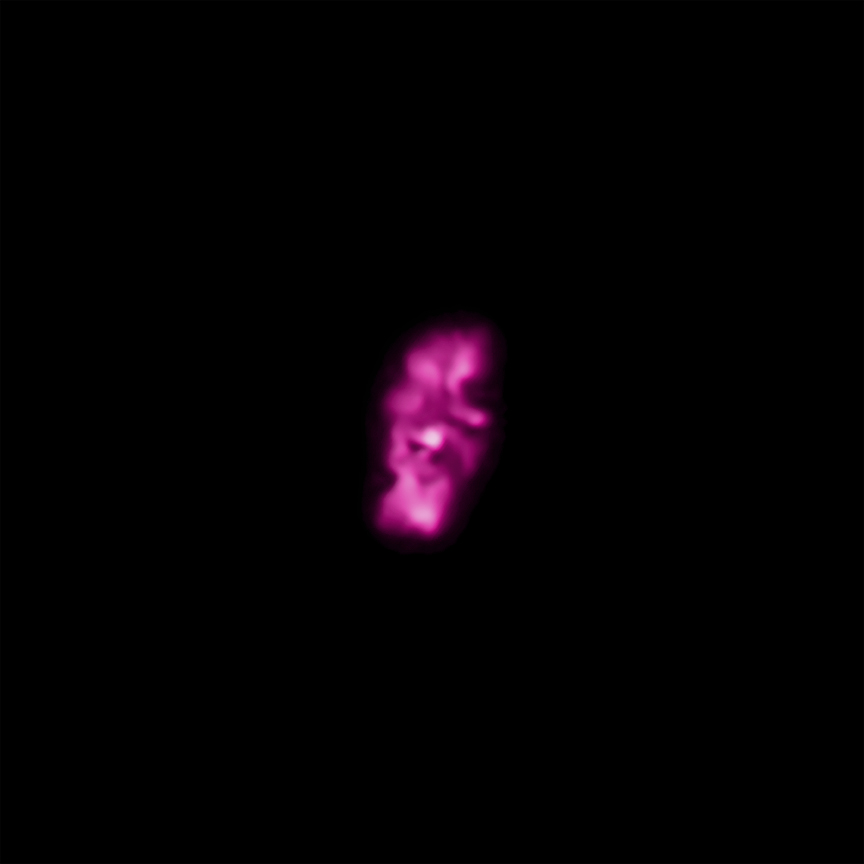
The diffuse X-ray emission of NGC 6543 is caused by shock waves as the wind collides with the ejected atmosphere. This image was released Oct. 10, 2012.
Optical Images of NGC 6543
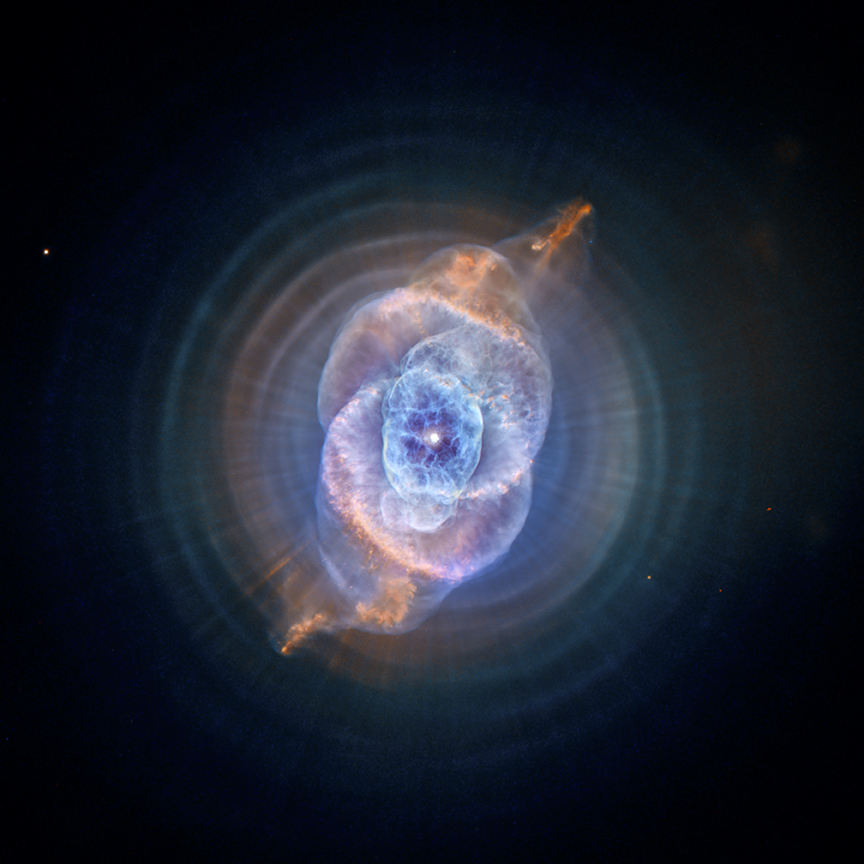
A wind from the hot core of NGC 6543 (aka the Cat's Eye) rams into the ejected atmosphere, creating the shell-like filamentary structures seen with optical telescopes. This image was released Oct. 10, 2012.
Chandra Image of NGC 7662
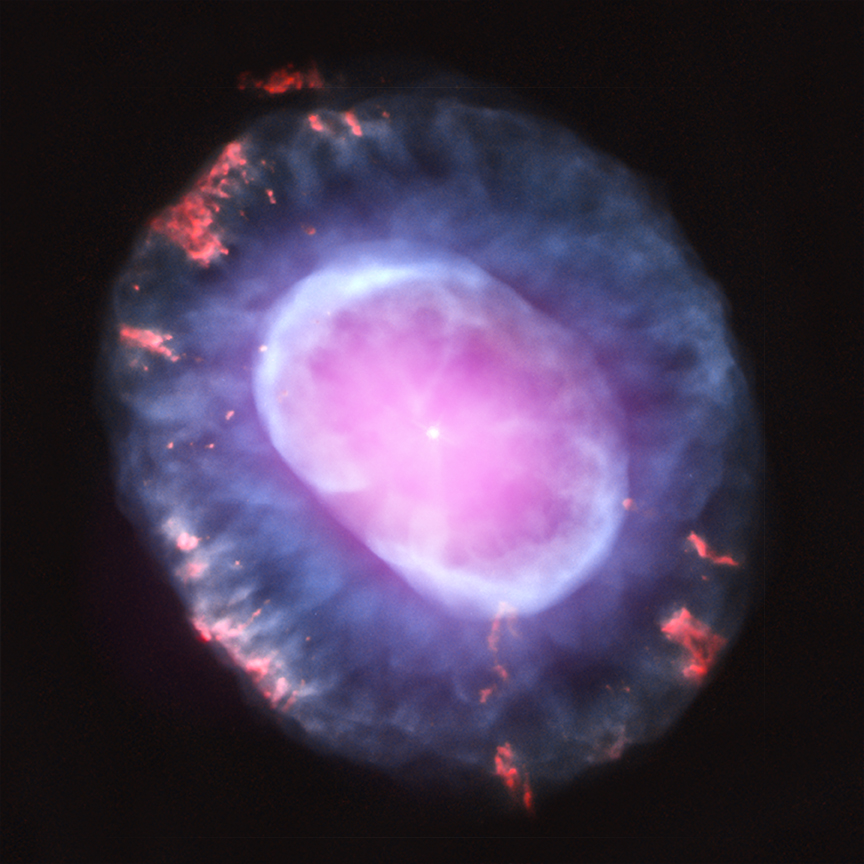
This image is of planetary nebula NGC 7662 as seen with the Chandra X-Ray Observatory. A planetary nebula is a phase of stellar evolution that the sun should experience several billion years from now, when it expands to become a red giant and then sheds most of its outer layers, leaving behind a hot core that contracts to form a dense white dwarf star. This image was released Oct. 10, 2012.
Get the Space.com Newsletter
Breaking space news, the latest updates on rocket launches, skywatching events and more!
X-ray Image of NGC 7662
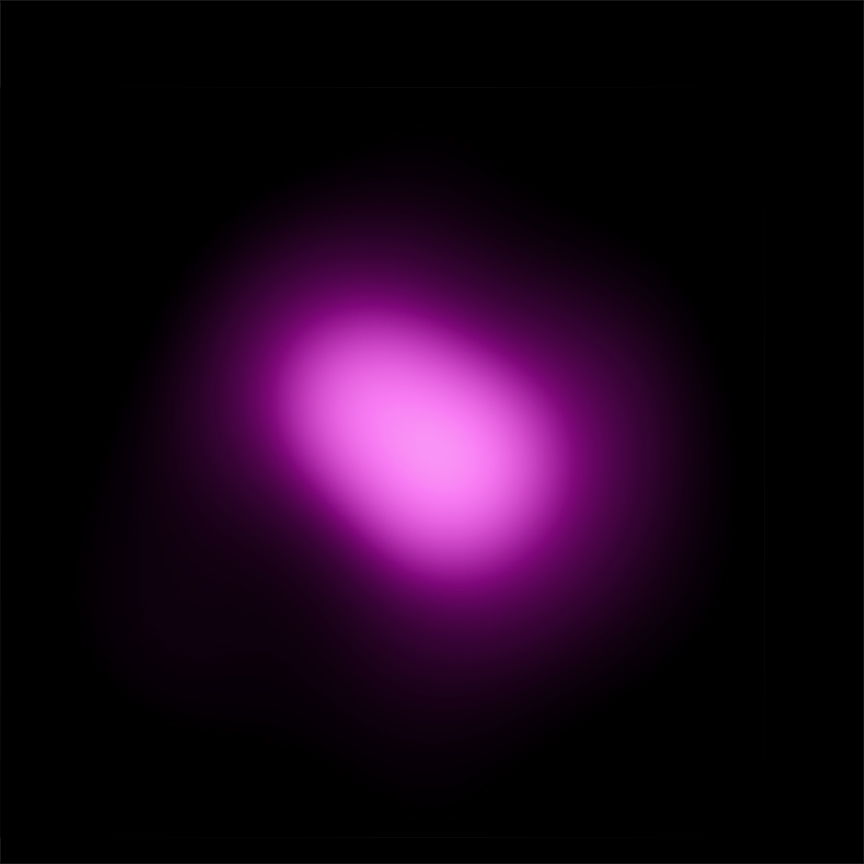
The diffuse X-ray emission of NGC 7662 is caused by shock waves as the wind collides with the ejected atmosphere. This image was released Oct. 10, 2012.
Optical Image of NGC 7662
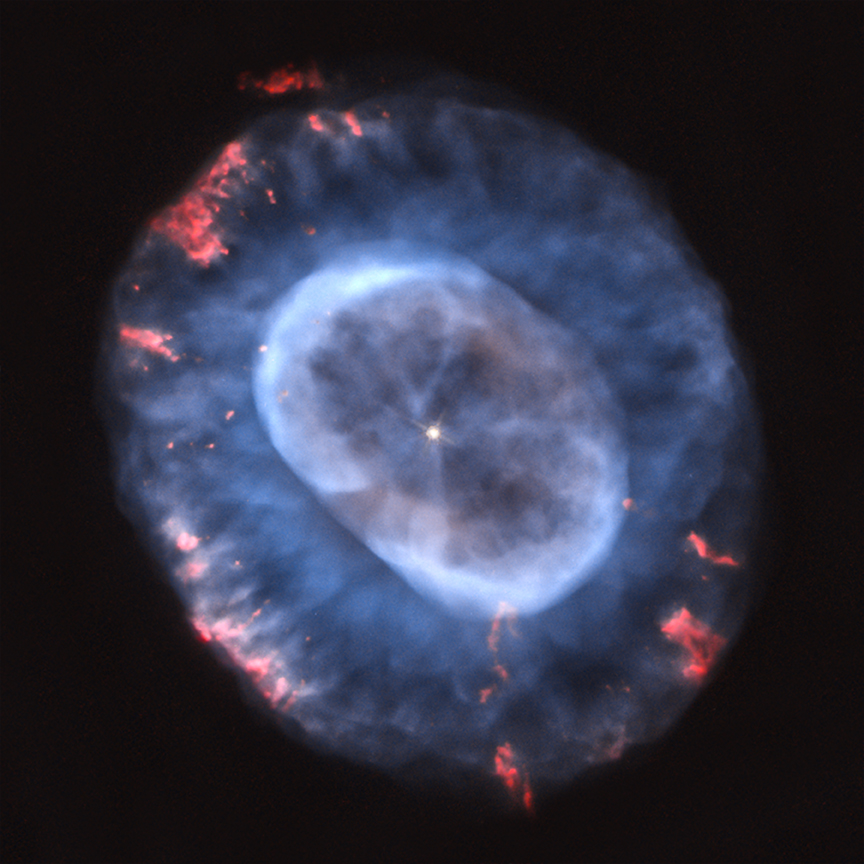
Optical emission of NGC 7662 from the Hubble Space Telescope is colored red, green and blue. This image was released Oct. 10, 2012.
Planetary Nebula NGC 7009
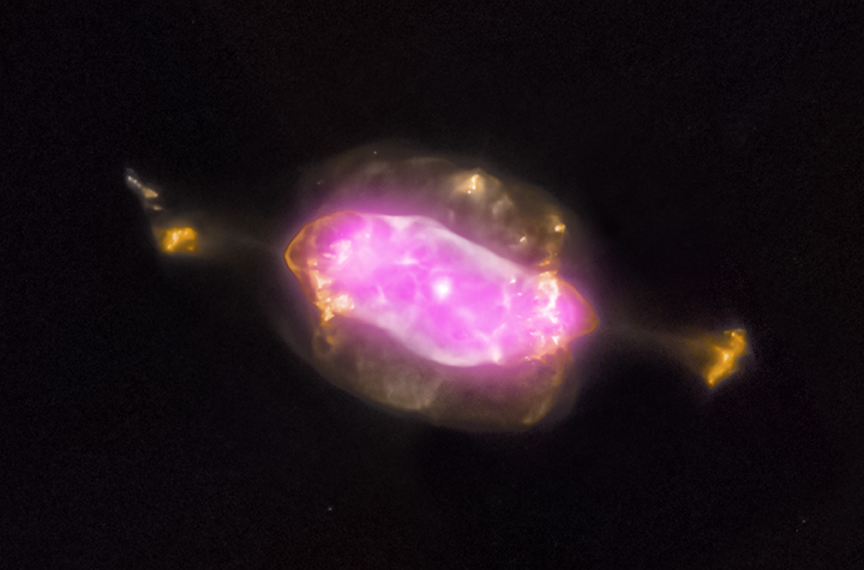
This image is of planetary nebula NGC 7009. A planetary nebula is a phase of stellar evolution that the sun should experience several billion years from now, when it expands to become a red giant and then sheds most of its outer layers, leaving behind a hot core that contracts to form a dense white dwarf star. This image was released Oct. 10, 2012.
X-ray Emission Image of NGC 7009
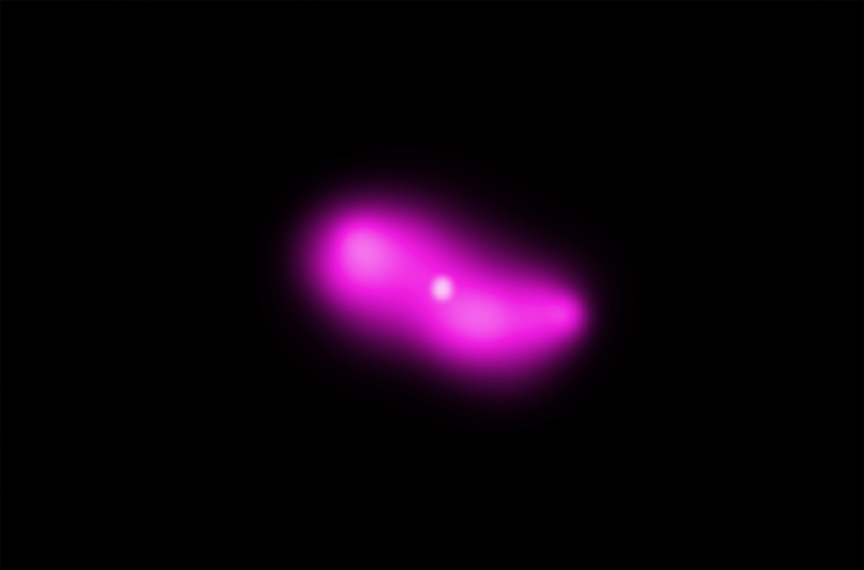
The diffuse X-ray emission of NGC 7009 is caused by shock waves as the wind collides with the ejected atmosphere. This image was released Oct. 10, 2012.
Join our Space Forums to keep talking space on the latest missions, night sky and more! And if you have a news tip, correction or comment, let us know at: community@space.com.

Space.com is the premier source of space exploration, innovation and astronomy news, chronicling (and celebrating) humanity's ongoing expansion across the final frontier. Originally founded in 1999, Space.com is, and always has been, the passion of writers and editors who are space fans and also trained journalists. Our current news team consists of Editor-in-Chief Tariq Malik; Editor Hanneke Weitering, Senior Space Writer Mike Wall; Senior Writer Meghan Bartels; Senior Writer Chelsea Gohd, Senior Writer Tereza Pultarova and Staff Writer Alexander Cox, focusing on e-commerce. Senior Producer Steve Spaleta oversees our space videos, with Diana Whitcroft as our Social Media Editor.









